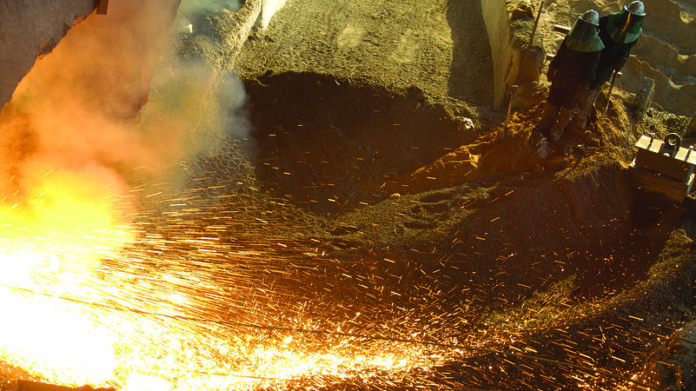
MERAFE Resources booked an impairment of R1.34bn in the first six months of its 2020 financial year owing to Covid-19 related production stoppages. Production was also lower as the firm idled facilities amid unstinting increases in electricity.
Commenting in its market review, Merafe said “… unsustainably high electricity pricing” was a major feature of the six months ended June 30. Total South African ferrochrome production had halved in the second quarter.
Glencore, Merafe’s joint venture partner, said in August that ferrochrome production from South Africa was facing major challenges after a court decision allowed Eskom, the country’s power utility, to recoup R67bn in tariffs over three years. This would compound high electricity price inflation.
“Prices in South Africa have escalated 500% over 10 years. Under these types of increases, we will struggle,” said Japie Fullard, head of ferrochrome operations for Glencore in South Africa last month. “I can’t see how we can operate our smelters in that price environment.”
The Glencore-Merafe Chrome Venture (in which Merafe has a 20.5% stake), has gradually reduced production of ferrochrome. In January, it opened a Section 189 process in terms of the Labour Relations Act in South Africa over its ferrochrome production at Rustenburg which produces 430,000 tons of the 2.3 million tons in installed smelting capacity.
Fullard said today a total of 1,000 people would be affected by the Section 189 review (in terms of South Africa’s Labour Relations Act) as well as the closure of Lydenburg which would account for 628 of the 1,000 job losses.
“About 1,000 employees are contemplating redeployment or retrenchment and it is right through the spectrum,” said Fullard. “We went out with a voluntary process and I am glad to say there were a large amount of applications.”
The restructuring process would be completed this month.
Commenting in its review of production, Merafe said today of the court decision allowing Eskom to recoup costs: “These cost pressures threaten the sustainability of our smelting business as well as employment in our sector.”
As flagged in its trading statement on August 28, Merafe posted a basic loss per share of 38.3 cents equal to -R961.1m. In addition to the impairment, there was R100m in depreciation charges. Excluding the exceptional items, headline earnings totalled 1.1 cents/share (2019: 6.6c/share).
Cash and equivalents as of June 30 totalled R263.3m, a decline of R90.8m year-on-year. The company has some R300m in a bank loan that remained undrawn.
The interim performance was also impacted by the hard lockdown from mid-March through to April following the proliferation of Covid-19 disease in South Africa. Production for the six months was 42% lower at some 120,000 tons of ferrochrome.
Global stainless steel production, which the ferrochrome industry supplies, was expected to be 11% weaker in the first half year-on-year. Chinese production, which was hit hard in the first quarter, rebounded strongly in the second. US and European stainless steel production has been hit harder in those regions’ subsequent lockdowns.
Global ferrochrome consumption fell 8% year-on-year during the first half with global supply experiencing “a more severe” 20% drop during the same period, said Merafe. The European benchmark ferrochrome price for the first half average $107.50 cents per pound, a 7% decline from the June 2019 average of $116c/lb.











